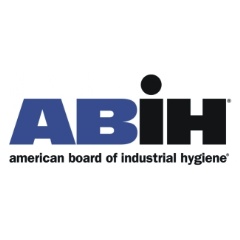Occupational Exposure to Fragrances Can Impact Workers that Suffer from Asthma
The American Board of Industrial Hygiene® (ABIH®) reminds workers and industry of the need to address occupational exposures to respiratory irritants, allergens, and hazards.
Fragrances, perfumes, cleaning chemicals, disinfectants, dusts, mold, plants, and animals are just a few of the numerous substances known to cause or aggravate asthma conditions in some workers.
Work-related asthma results from exposure to allergens or irritants on the job. Exposure to these substances can lead to new cases of asthma or worsen existing asthma in some people. The National Institutes of Health (NIH) details that more than 250 substances are known or believed to cause or exacerbate work-related asthma (occupational asthma). These substances are found in many chemicals, including some fragrances.
Perfumes and fragrances that are found in personal care products, air fresheners, cleaning products, and many other items can act as a respiratory irritant for some workers. Even worse, the smell of a strong perfume or fragrance could possibly trigger an asthma attack for some employees with the condition.
Unfortunately, for some asthmatics, exposure to asthma triggers, such as perfumes and fragrances, may be a frequent occurrence in the work environment. Work-related asthma causes a shortness of breath, chest tightness, coughing, and wheezing. A severe case can be disabling and in extreme circumstances, an asthma attack could result in death.
To address this issue, the California Work-Related Asthma Prevention Program (WRAPP) has published information for employers and workers about exposure to fragrances. The program reports finding hundreds of asthma cases in that state associated with exposure to fragrances from indoor work environments as diverse as schools, hospitals, offices, and manufacturing facilities. WRAPP fact sheets highlight several case studies and offer tips to help prevent asthma in the workplace from this type of exposure. Their suggestions include:
- Training employees about the health effects of fragrances.
- Having a fragrance-free policy.
- Prohibiting the use of air fresheners in the workplace.
- Fixing or removing what is causing bad odors.
- Choosing fragrance-free cleaning products.
- Bringing in adequate fresh air from the outside.
“Fragrances, perfumes, cleaning chemicals, disinfectants, dusts, mold, plants, and animals are just a few of the numerous substances known to cause or aggravate asthma conditions in some workers,” said Dirk Yamamoto, PhD, CIH® and Chair of ABIH®. “Certified Industrial Hygienists (CIHs) are trained to identify and mitigate exposure to various types of respiratory irritants and environmental asthma triggers. These professionals are uniquely qualified as they are knowledgeable and experienced in workplace assessments, air sampling, risk assessment, and exposure controls. These and other core competencies that are central components of the Certified Industrial Hygienist program are critical for establishing and maintaining a safe and healthy work environment for asthmatics and all employees.”
To learn more about the American Board of Industrial Hygiene®, the Certified Industrial Hygienist® credential, or to locate a CIH® to perform industrial hygiene services, please visit www.ABIH.org or email abih@ABIH.org . For information about the Qualified Environmental Professional (QEP®) credential or Environmental Professional In-Training (EPI) designation, visit www.IPEP.org or email ipep@IPEP.org . Please call (517) 321-2638 for questions about ABIH or its credentials and designations.
About the American Board of Industrial Hygiene ®
Since 1960, ABIH®, a not-for-profit corporation, has been the world’s largest organization for certifying professionals in the practice of industrial hygiene. ABIH® is the premier credentialing body responsible for ensuring high-quality certification including education, experience, examination, certification maintenance, and ethics enforcement. ABIH® also administers the Qualified Environmental Professional (QEP®) credential for established environmental practitioners and the Environmental Professional In-Training (EPI) designation for early-career practitioners. Currently, more than 7,600 people around the world hold the CIH® credential, QEP® credential, or EPI designation.
( Press Release Image: https://photos.webwire.com/prmedia/12710/235247/235247-1.jpg )
WebWireID235247
- Contact Information
- Paul Cochrane
- President
- Cochrane & Associates, LLC
- Contact via E-mail
This news content may be integrated into any legitimate news gathering and publishing effort. Linking is permitted.
News Release Distribution and Press Release Distribution Services Provided by WebWire.
